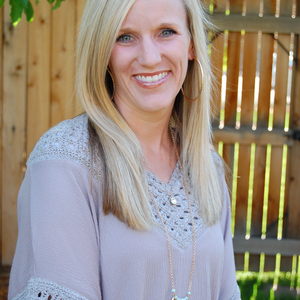Parenting a Child with an Eating Disorder: What if They Refuse Treatment?
Author:
Sunnie Gruwell
As a parent, it can be so frustrating to watch your child resist the very thing that they need most — the thing that could give them freedom, open up the windows of their happiness, and ultimately save their lives.
Recently I had the opportunity to speak with others who are parenting a child with an eating disorder. Their stories were their own, but there was a common thread in our discussion: treatment resistance. These parents were dealing with family members who were digging in their heels and putting up a fight about getting help.
In speaking with these parents, I found myself feeling a little helpless. I wanted to offer something of value and give them a sliver of hope that things would be okay, but I was struggling. Initially, I had a hard time seeing how our stories could relate.
Dealing with resistance
When we admitted our daughter to a treatment center for anorexia, she went kind of willingly. She was 12 at the time — not even an official teenager — so resisting going wasn’t really even in her mindset. Plus, she was sick and miserable and her options for help were few. We told her she was going to treatment and she went.
Her time in treatment was life-altering — for her, as her health and mental state improved drastically — but maybe even more so for me. I went from feeling like a hopeless parent, drowning in the struggles of trying to raise a large family and keeping a daughter with a serious illness alive, to having a sense of empowerment and confidence regarding her eating disorder. I gained knowledge and understanding and began to learn that I could help my daughter. We no longer had to live under the grips of and give into all the demands of an illness like anorexia. And that knowledge was freeing.
After three months away in treatment, our daughter returned home. And while we were miles ahead of where we had been, parts of her eating disorder still remained. She hadn’t resisted going to treatment, but upon returning home she showed resistance to staying well. She didn’t always want to be in recovery and certainly didn’t want to do all the work needed to stay there. This is where our training as parents had to come into play.
Meeting resistance with strength
By nature, I am a people pleaser, and I am definitely non-confrontational. But when it came to dealing with our daughter’s eating disorder, I learned that I had to change. Hard and fast lines had to be drawn, rules had to be enforced, and follow through was essential. We had to make life with eating disorder behaviors unpleasant, uncomfortable, and not any fun.
Staying on her meal plan was priority number one. Food was the medicine that was keeping her alive, and she was expected to eat according to her meal plan schedule. Her other privileges were solely dependent on whether or not she was compliant with her meal plan.
So what did this mean? It meant she missed school if she wouldn’t eat. Church wasn’t happening if breakfast wasn’t consumed. If she left without permission, I would find her and bring her home. Sports, activities, and friend time completely hinged on her willingness to do the basic thing she needed to do to stay alive — eat. She wasn’t always happy with us. And we had to lay other things aside as we focused on enforcing these behaviors. But with time, our efforts began paying off as slowly our daughter became less and less driven by her illness.
Tips for parenting a child with an eating disorder
When I came away from the conversations mentioned above, I felt a little discouraged that I hadn’t been able to be more helpful that day. But, after some thought, I began to realize that I did have something of value I could say to those parents. The type of resistance we dealt with may have been different, but the course of action was still the same.
If I could offer any advice or words of encouragement, it would be these:
- You have more power than you know.
- You don’t have to live according to the demands of a disorder.
- Your child needs your help (even older children); in most cases, they want help even if they don’t say it.
- You (not your child) are the one thinking clearly and rationally.
- You have the ability to set things in motion that can really make a difference.
Parents, your child may fight you now, but hopefully one day they will thank you for doing the hard things, setting firm boundaries, and drawing the lines that saved them and set them free. If your child is in need for professional help for an eating disorder, call Eating Recovery Center at 877-711-1878 to speak confidentially with a Masters-level clinician about eating disorder treatment.
Read more from Sunnie as she shares her own experiences parenting a child with an eating disorder:
Struggling with an eating disorder?
One conversation can make all the difference. Connect with us today.
Get Help NowConnect With Us
Download Free Whitepaper: "Extreme Eating Disorders in Kids and Teens: Expert Insights for Early Detection and Treatment"

